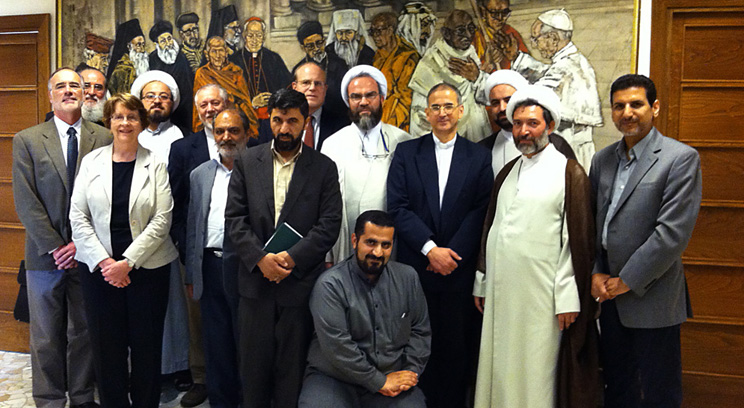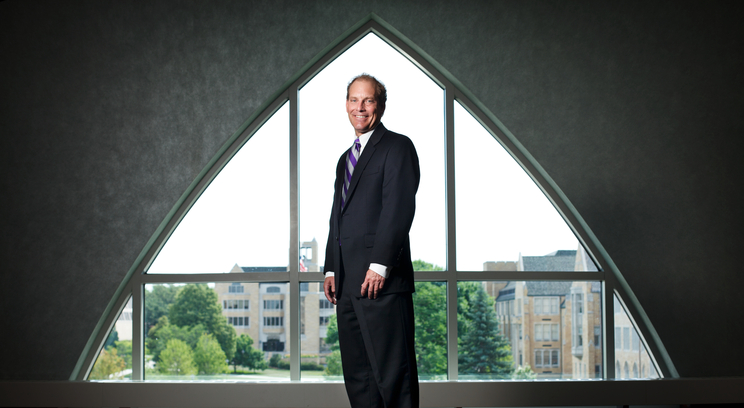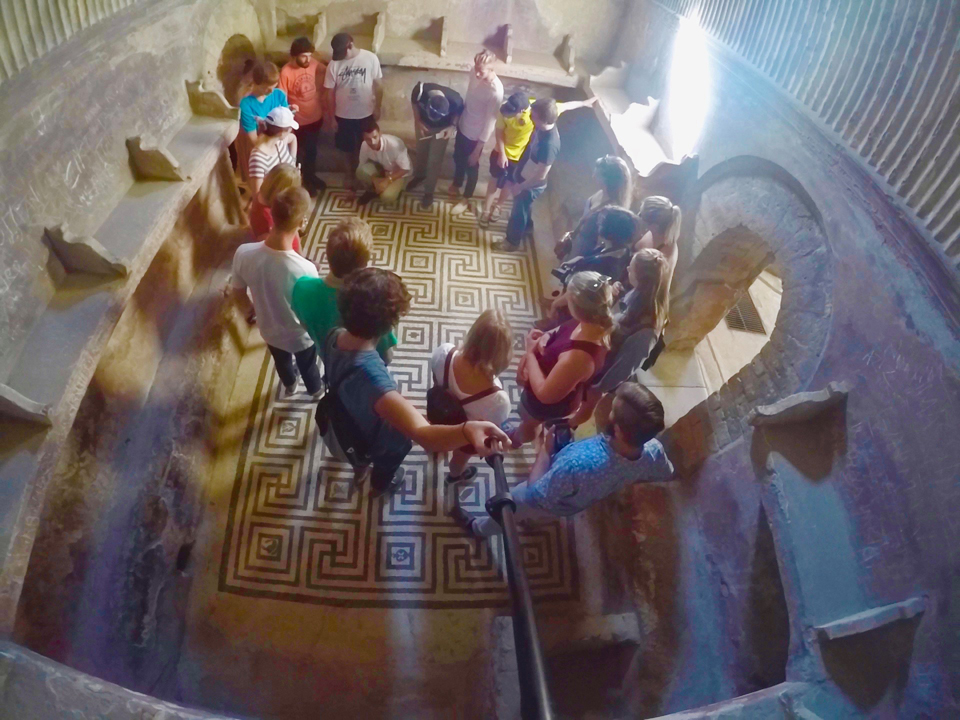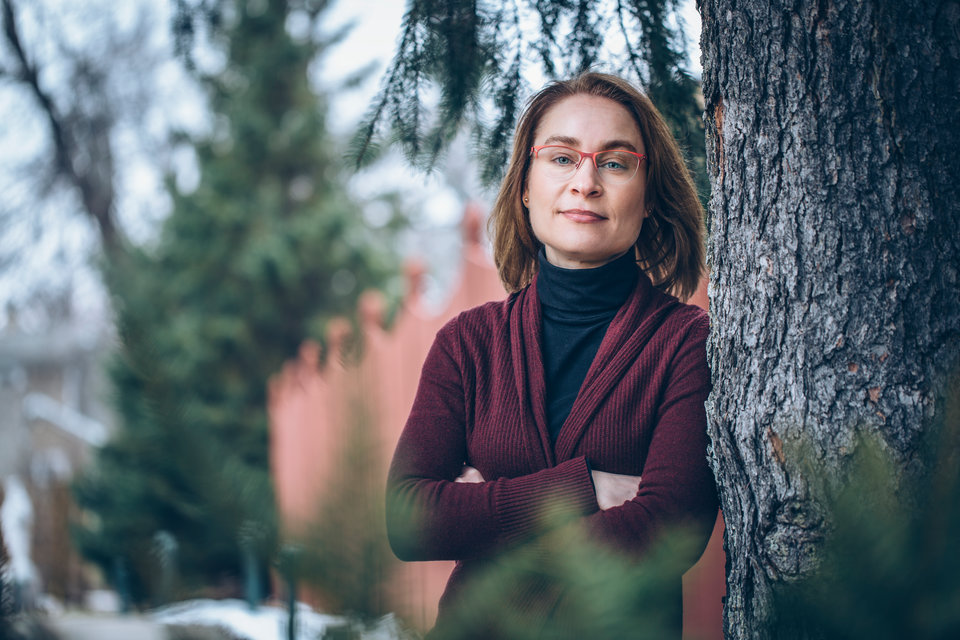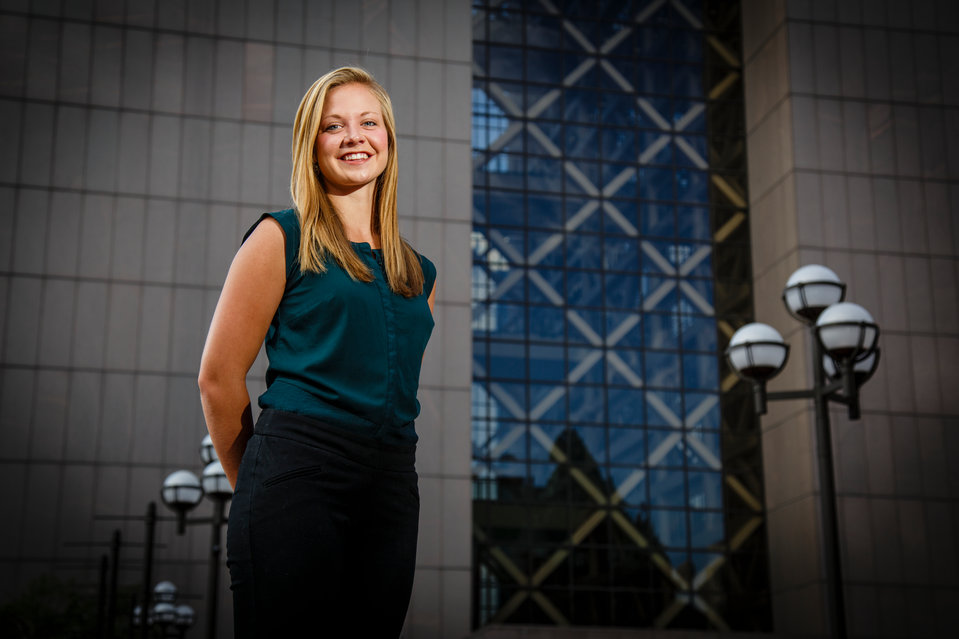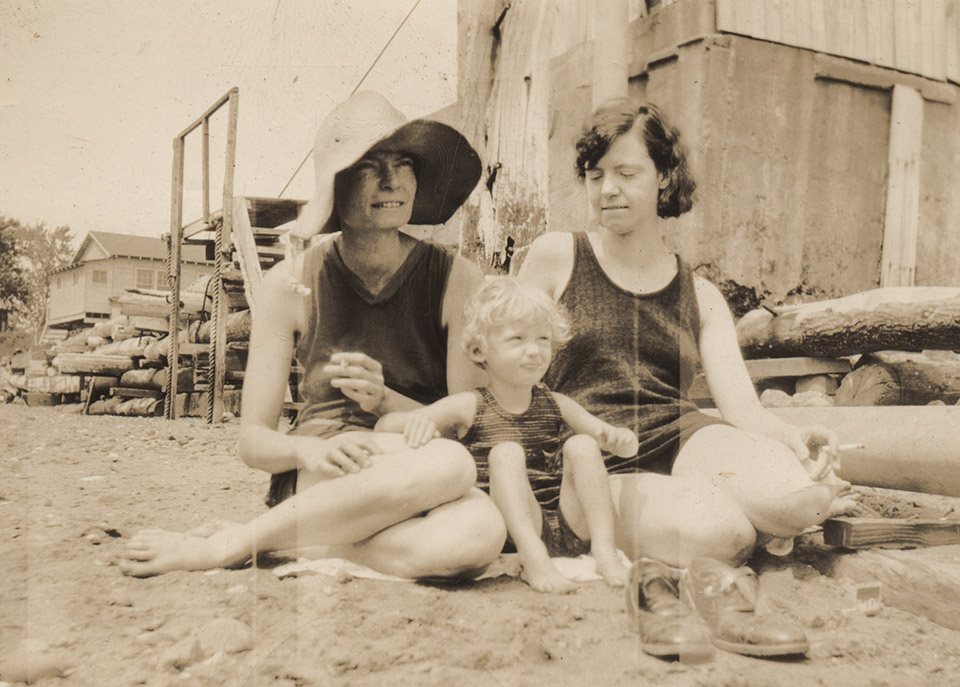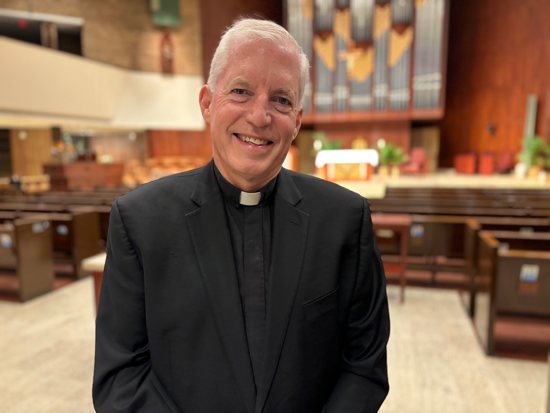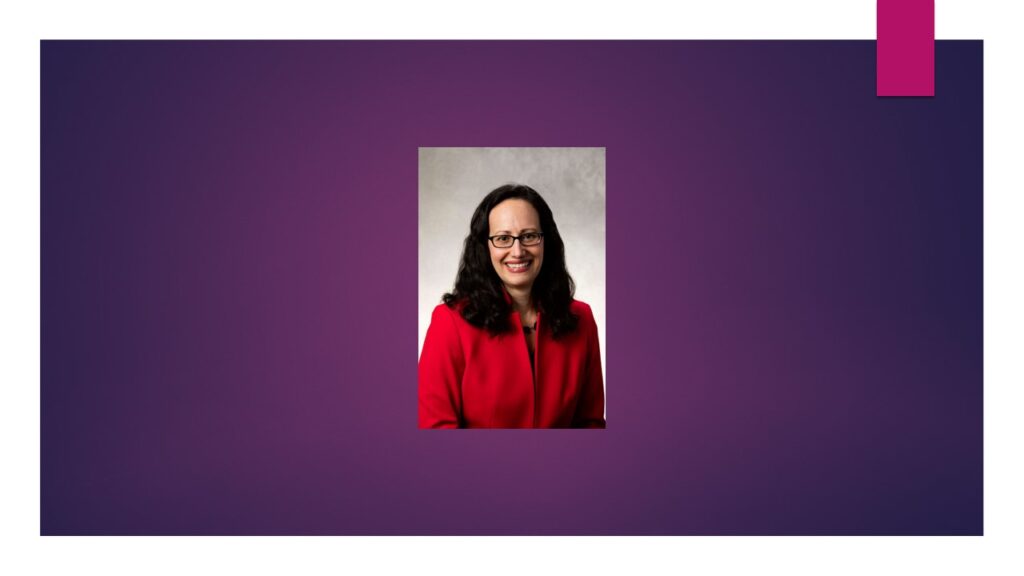Discussing a particular theological question is like pulling that piece of thread coming out of your sweater. The more you pull, the more you see how connected the piece of thread is to the whole of the sweater; likewise, the deeper you address a theological topic the more you see its connectedness to other questions in theology and indeed to questions within other faith traditions. In 2012, St. Thomas theology faculty and students have had several opportunities to pull at the threads of connection between Christians and Muslims.
For three days in January, three theology professors from St. Thomas – Dr. Terence Nichols, Dr. Michael Hollerich and I – sat around a table in Izmir, Turkey, and discussed the topic of religious freedom with 25 of our counterparts from Dokuz Eylul University.
Dokuz Eylul, a national Turkish university, hosted what was to be a unique experience for the participants: a rare occasion when Roman Catholic theologians and Sunni Muslim theologians dedicate time together to discuss issues of mutual interest. More challenging than the religious, cultural and language barriers among us was the topic of conversation itself: religious freedom. For both religions, religious freedom has had a controversial and convoluted history.
At the same time the theologians were discussing their scriptures and traditions on religious freedom, 24 students led by another member of the Theology Department, Dr. Adil Ozdemir, also were traveling in Turkey studying modern Islam. Along with the study of the history and divisions in Islam the students visited the homes of several Muslim families. The area of Turkey they visited often is referred to as the “Cradle of Christianity.” (In biblical times Turkey was known as “Asia Minor.”) It was the birthplace of many early Christian saints and the home to the first eight councils of the Church, including Nicaea and Ephesus. Most Christians would recognize the names of those ancient cities from famous texts that bear their names, the Nicene Creed and St. Paul’s Letter to the Ephesians.
Muslim-Christian Dialogue
The Second Vatican Council of the Catholic Church (1962-1965) opened the door for the Church and theology to engage in interreligious dialogue. Pope Paul VI established what is now known as the Pontifical Council on Interreligious Dialogue in 1964. Much has changed in substance and method in interreligious dialogue over the past 50 years, and work at St. Thomas today represents the best of current thinking and practice.
Indeed, St. Thomas has a strong history of such dialogue. In 1985 Monsignor Terrence Murphy, then president of St. Thomas, and Rabbi Max Shapiro of Temple Israel in Minneapolis, started what is now called the Jay Phillips Center for Interfaith Learning and the Theology Department soon offered courses on Judaism. About 20 years ago, the Theology Department began offering a course on Islam to complement its course on Judaism.
In 2007, the Theology Department officially started the Muslim-Christian Dialogue Center (MCDC). The work of the center is grounded in Catholic theology and follows the lead of the Pontifical Council on Interreligious Dialogue. According to the council, “Dialogue is a two-way communication. It implies speaking and listening, giving and receiving, for mutual growth and enrichment. It includes witness to one’s own faith as well as an openness to that of the other.” Since its inception, the center has sponsored a variety of talks and theological dialogues on the local, national and international levels. The center’s purpose is theological, rather than political, dialogue. The objective of the center is grounded on four tasks: to reflect on things Muslims and Christians hold in common, to honestly identify points of difference, to work to clarify misunderstandings and misconceptions, and to highlight points where further discussion would be fruitful. Both the January workshop at Dokuz Eylul and the January-Term course developed from the work of the Muslim-Christian Dialogue Center.
Religious Freedom
Christianity and Islam hold that faith is essentially an actstemming from the basic freedom of the person. In other words, no one can be forced to believe. The groups of theologians who met at Dokuz Eylul acknowledged, however, that each religion historically has struggled with this belief. Each has had a history of both supporting and suppressing this doctrine; both have histories of toleration and coercion.
The workshop highlighted more than this commonality. Like pulling that piece of thread, in the conversation on religious freedom, the theologians from each group saw the connections between their religions on many levels. The theologians witnessed how the other group “does” theology. The discussions of religious freedom lead to conversations about the use and authority of scripture, traditions, as well as the historical inculturation of each religion.
A stunning moment in the discussion came when St. Thomas’ Dr. Terence Nichols, the co-director of the MCDC, pulled out his Bible and a copy of the Quran and read a verse from each.
Acts 10:34: “Then Peter began to speak to them: ‘I truly understand that God shows no partiality, but in every nation anyone who fears him and does what is right is acceptable to him.’”
Quran 2:62: “All those who believe – the Jews, the Christians, and the Sabians – all those who believe in God and the last day, and do what is good – will have their reward with their Lord. [There shall be] no fear for them, nor will they grieve.”
The recognition that these verses made the same point presented a moment of cohesion as well as tension in the conversation. The common ground here was so evident that it pushed the distinctiveness of the two religions into the background – for a moment. Yet the commonality here was based on the “heart” of each religion, the scriptures, the very basis of the distinctiveness of the two religions.
For the final session of the workshop each group wrote a short essay reflecting on the conversation and endorsing religious freedom. These essays were read at a public event in the auditorium of the university. Copies of the essays are available on the Muslim-Christian Dialogue Center website: www.stthomas.edu/mcdc.
Some Catholics do not think we ought to have religious dialogue with Muslims. Indeed, some Muslims do not think they ought to have religious dialogue with Christians. Yet there are a few important reasons why dialogue should occur. Many would argue that given the contemporary global situation, it is imperative, politically and economically, to have such conversations. While this was certainly in the background in Izmir, it was not the dominant reason why people were around the table. It was the shared opinion among the theologians that their faith and religions encouraged, if not demanded, such dialogue.
One of the Turkish theologians at the workshop remarked that the visit by the St. Thomas professors had “opened the world to us.” The St. Thomas professors themselves were opened to new ideas and possibilities.
Students in Dialogue
Islam in Turkey was one of five January-Term study-abroad courses offered by the Theology Department. (The others were Theology 101 in Rome, Pope John Paul II in his Polish Context, The Church in Latin America, and Pilgrimage in Italy.) Students in the Turkey course were immersed in dialogue with Muslims under the supervision of theology professor Ozdemir. They learned firsthand the things shared by Muslims and Christians, as well as the elements of the traditions where there will always be disagreement. For example, student Michael Oolman, who is completing an individualized major in Arabic, noted a common morality. “Both religions,” he wrote, “have core beliefs in giving to the needy, treating others with respect, and abstaining from worldly indulgences.” He also commented, however, that Muslims do not believe some central tenets of Christianity, namely that God is a Trinity and that Jesus is both human and divine. Islam, he noted, “teaches there is a distinct separation between God and creation so the concept of a God-man is impossible.”
Senior Adam Miller, a political science major, left Turkey with the sense that his Christian faith was taken seriously and respected, and he noted a big difference between his daily thinking and that of the people he met. He wrote, “Muslims are much more open about their faith, and every conversation that we had involved how God is central to everything in their lives.”
Student Bryce Werkmeister, an engineering major, identified a key issue in interreligious dialogue, namely that the conversation partners must see the other as an equal. He said his discussions with younger Muslims were more dialogues than were his discussions with elders. In these latter conversations, “knowledge seems to be only ‘given’ by the elder and ‘received’ by the younger.” He wrote, “All people are more likely to listen once you have actually listened to them. If you can convince them that you understand them and appreciate their point of view, they will be far more likely to listen to your point of view and actually understand it.” He, like other students, was surprised to see the varieties of “strictness” in religious practice among Muslims.
Senior Nick Mahowald, an engineering and business major, recalled that many Muslims in Turkey had strongly held preconceived notions of what they thought Americans thought about them. Many Muslims felt that Americans did not have enough knowledge about Islam and that Americans were very fearful of Muslims. Thus, he said, many people the St. Thomas students met tried to defend Islam and at the same time wanted the students to know that Muslims were not to be feared. He recalled a very moving moment when the students met a woman who started crying when she realized that they were Americans who wanted to learn more about Islam.
Both Oolman and Mahowald observed how their encounter with Muslims affected their own faith. For Oolman, the “selflessness” of Muslims impressed him. “I realized that my main approach to my faith should be selfless rather than trying to find what I can receive from having faith.” Mahowald was impressed by the sincere hospitality of the people, the strong communal nature of their faith and the fact that they all prayed five times a day.
For our St. Thomas students, the world at once got bigger with the realization of the vastness of Turkey and the depth of Islam, and at the same time it got smaller as they realized the things they had in common with Turkish Muslims.
Interfaith Dialogue With Iranian Theologians
Within weeks of returning from Turkey, Nichols received an email message from Dr. Taher Golestani of the Muslim Christian Interfaith Dialogue Committee in Qom, Iran. Golestani’s message, addressed to multiple people around the world, was in search of possible partners in dialogue. Nichols, ever the advocate, responded. He saw a unique opportunity to meet and work with people living in that isolated country.
Islam, like Christianity, is divided by denominations. The vast majority of Muslims in the world are Sunni, as were our hosts in Turkey. The second largest group is Shia. Anyone who follows world news knows that there are significant tensions between the two groups and that Iran is a Shia country. Nichols had over the years organized and participated in Catholic-Shia dialogues within Minnesota among Americans, and he wondered what a Muslim-Christian dialogue would be like with Iranian Shia theologians.
You would be hard pressed to meet a person more eager for this sort of encounter than Nichols. After many emails, meetings and phone calls, in June he, Hollerich and I were off to Rome, a neutral location midway between the two countries. Joining us this time was Odeh Muhawesh, a Shia cleric who studied in Iran and is now an American businessman. Muhawesh teaches part time at St. Thomas.
Participants in the interreligious dialogue in Rome presented papers on some fundamental theological topics of mutual interest. While most conversations were on a general get-to-know-you level, at two points the dialogue heightened – more pulling of the thread – and illustrated the purposes and benefits of dialogue. The first was a discussion of what Jesus meant by “turn the other cheek” (Matthew 5:39). These words from the Sermon on the Mount raised important questions about the religious justification or rejection of violence and the priority of nonviolence. This is a question that thoughtful Christians and Muslims face every day, living in societies threated by war and oppression.
A second moment of creative conversation arose in a discussion of the religious justification of political authority, what we in America would call “church-state” issues. The “separation” of religious authorities and political authorities is understood very differently in Muslim Iran and American Catholicism. This highlights how interreligious dialogue is distinct from political dialogue; the objective here is not compromise or change. The objective is understanding.
One of the many highlights was when the entire group met with Monsignor Khaled Akasheh, the Vatican’s point person for dialogue with Islam. He serves as head of the Office for Relations with Islam at the Pontifical Council for Interreligious Dialogue, where the meeting was held. The Iranians learned a great deal about Catholicism from the St. Thomas theologians and the conversation with Akasheh, as well as from the visits to St. Peter’s Basilica and other sacred places. We learned a great deal as well, and it was knowledge that cannot be learned from books.
Future Conversations
Reflecting on the two experiences, Nichols commented, “Our dialogue partners in both Turkey and Iran are among the intellectual leaders in their countries. They are doing in their world what we do in ours: trying to teach others about God. We hope and pray that our efforts as Christians and Muslims to work together will bring fruits of peace and understanding to each of our countries.”
A second meeting with the Iranians, either at St. Thomas or in Qom, Iran, is hoped for next year, but given current political conditions (the U.S. Department of State has had Iran on its Travel Warning list for many years) it seems uncertain. On the other front, several theologians from Dokuz Eylul University are scheduled to come to St. Thomas in January 2013 for a second workshop.
Read more from CAS Spotlight.
